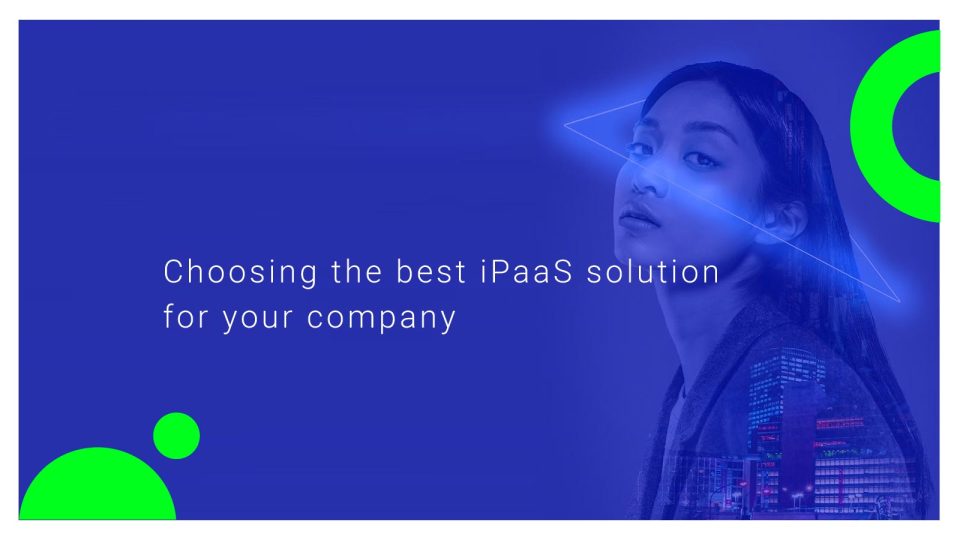Pointers to take into account when picking an iPaaS provider, functionalities, advantages, future trends, etc.
Do you know that the success of your business today hinges on your ability to integrate data, tools, and systems? The more your employees, teams, and staff have data and tools at the snap of your fingers, the more your organization stays ahead in the realm of break-neck competition. To deal with the huge demand for organizations to integrate their internal processes and systems, iPaaS (integration platform as a service) emerged to make everyone’s life easier.
Bringing an iPaaS to your organisation helps to connect all the tools, systems, and data in one place. It also helps in streamlining and automating business processes. iPaaS tools come with an in-built cloud that enables your team to access tools, data, and information from anywhere. While iPaaS offers a panacea to the integration problems you face, it is also essential to pick the iPaaS solution that is scalable, flexible, and fully meets your business requirements.
With a market that had a value of $3.7 billion in 2021, and is predicted to grow to $13.9 billion by 2026, exhibiting a compound annual growth rate (CAGR) of 30.3% from 2022 to 2026, it is clear that iPaaS will continue to be a significant trend next year.
We will walk you through the factors you can take into account when picking an iPaaS provider.
Also Read: Future of Data Integration: How AI is Changing the Blueprint for Businesses
Choosing the Right iPaas Solution
iPaaS brings a host of benefits to businesses, such as integrating all your business applications, improving workflow automation, and offering data privacy. But with so many options available on the market, how do you choose the right solution?
Evaluating your business requirements
The first step in choosing a suitable iPaaS platform is to understand your business requirements. Begin the process by considering the scale and scope of your operations and how likely they are to grow in the future. The ideal iPaaS solution should not only align with the current requirements of your business but also be scalable to accommodate future growth and expansion.
Scalability is an essential feature of an iPaaS solution that ensures your organization can adapt to changing business requirements without making any significant system overhauls.
Here are some more key factors to consider before investing in an iPaaS solution:
Integration Capabilities
As you narrow down and filter the list of iPaaS providers, look for the ones with a range of integrations they have to offer. You can check the variety of pre-built connectors and the flexibility available to handle custom integrations. When an iPaaS provider comes with huge integration capabilities, it can accommodate the future growth of your organization with increased data volumes.
Ease of Use
Irrespective of how robust the capabilities an iPaaS tool are, it should be easy to use for your technical and non-technical staff. The platform that you choose for your organization should have a user-friendly interface, ensuring a smooth learning curve for your staff.
Security and compliance
Security and privacy are crucial in today’s digital landscape. Whichever iPaaS solution you choose for your organization must adhere to the security guidelines and protocols. Additionally, you must look for an iPaaS provider that offers data encryption and secure data transmission protocols so that you know your data is always protected.
Performance and reliability
Before selecting one of the many iPaaS providers, you are free to check its performance and uptime statistics. If your organization handles large volumes of data, your new iPaaS tool should efficiently handle the data load with minimum latency. Additionally, you should also check whether the tool will be able to work on more data as your organization grows in the future. Your iPaaS solution must scale and accommodate the future needs of your business without compromising performance.
Also Read:CIO Influence Interview with Hao Yang, VP and Head of AI at Splunk
Customer Support and Community
You also need an iPaaS provider that offers robust customer support and has a wide and active user community to look up to. All marketers know the significance and value of reliable community support. While trustworthy customer support helps you with technical difficulties, an active user community provides you with additional insights and solutions that users commonly face.
Conducting a Pilot Test
Finally, before choosing a suitable iPaaS solution for your organization, it is essential to run a pilot test. Testing a few solutions one after another will help you understand how the platforms are fitting into your business ecosystem. During the pilot test, you should pay attention to its features like convenience of use, scalability, and compatibility with the existing software tools.
Wrapping Up – Future Predictions for iPaaS
The future of iPaaS is bright, as the demand for seamless data integration continues to rise. Some key trends to watch are AI-powered integrations, cloud-native iPaaS, low-code/no-code development, and focus of security and compliance. By carefully considering your business needs and staying informed about future trends, you can select the right iPaaS solution that empowers your organization to thrive in today’s data-driven world.
[To share your insights with us as part of editorial or sponsored content, please write to psen@itechseries.com]


